
Animal
10:45, 13-Feb-2019
Wildlife of China: The binturong
By Li Yunqi
00:35
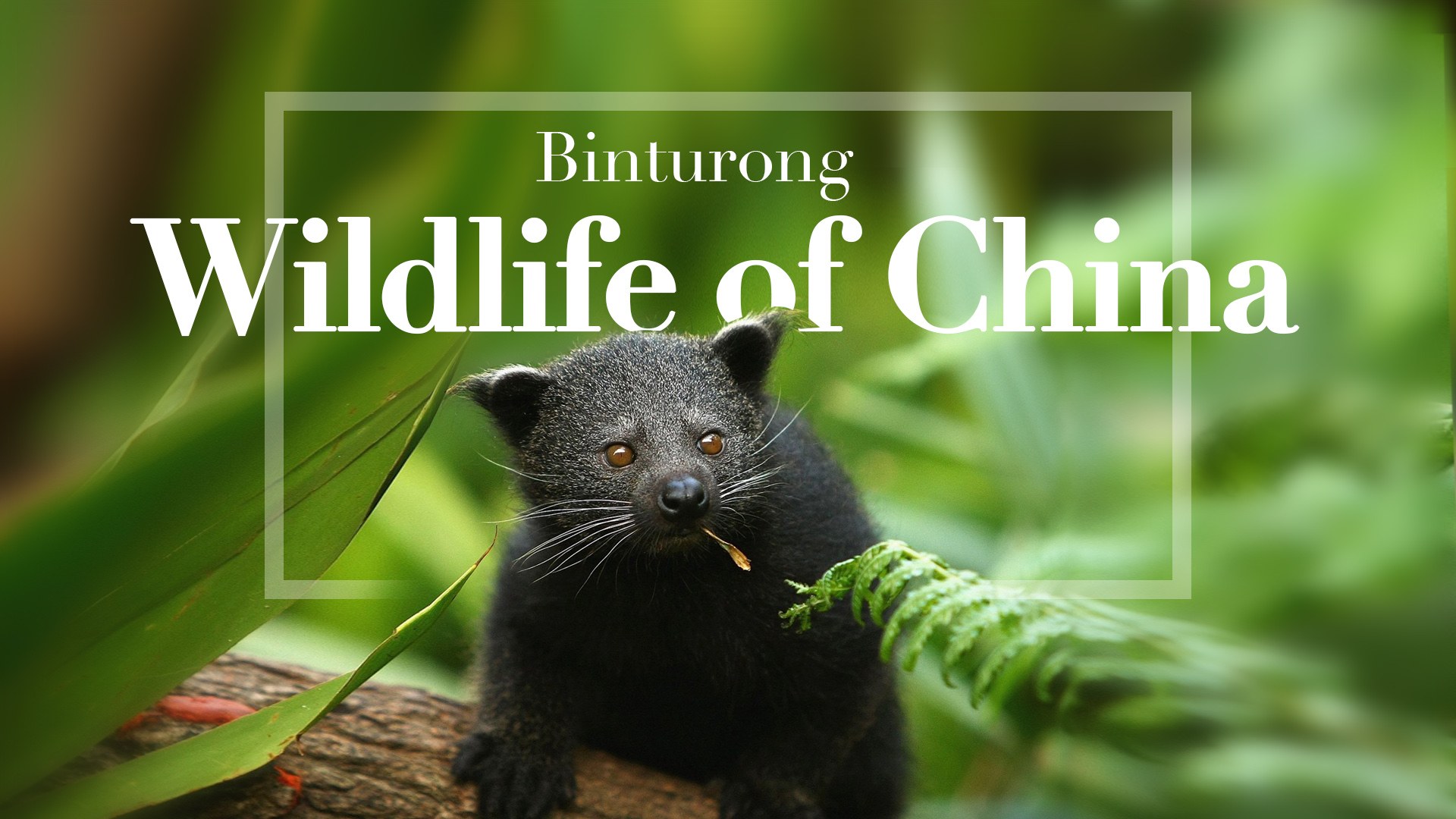
In the dense forests bordering Bhutan, Myanmar, Laos, and Vietnam in southwestern China, diversity in species thrives. Among all the delightful creatures that nature nourishes in this area, the binturong is a unique one. This critter is popularly known for its cleverness as well as the buttered-popcorn scent it produces when marking its territories.
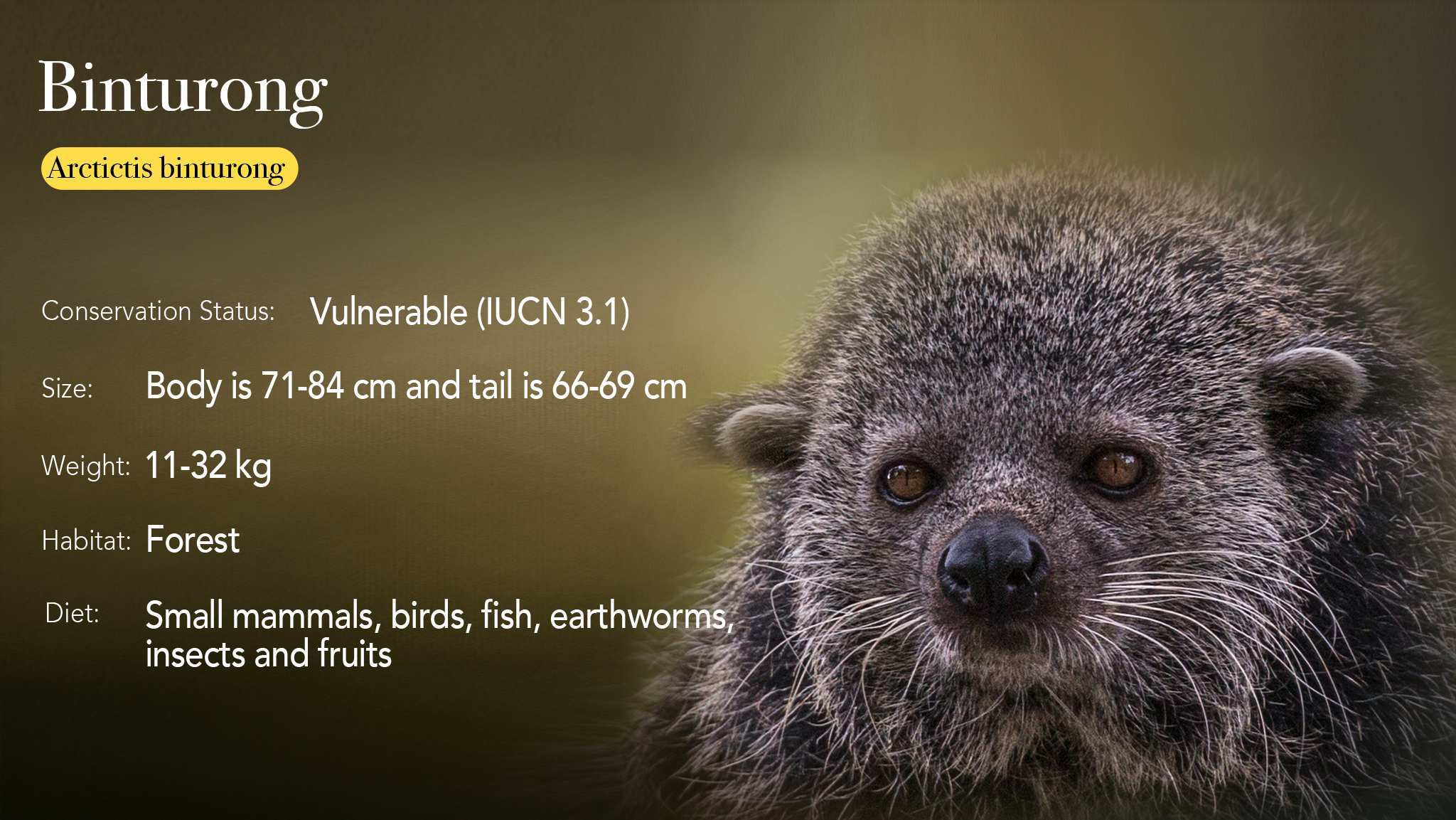
General information about binturongs. /CGTN Photo
General information about binturongs. /CGTN Photo
The binturong is also known as the bearcat because of its cat-like face and bear-like strides when walking on the ground. However, this species is related to neither cats nor bears. It also has a curly tail that is similar to that of a monkey.
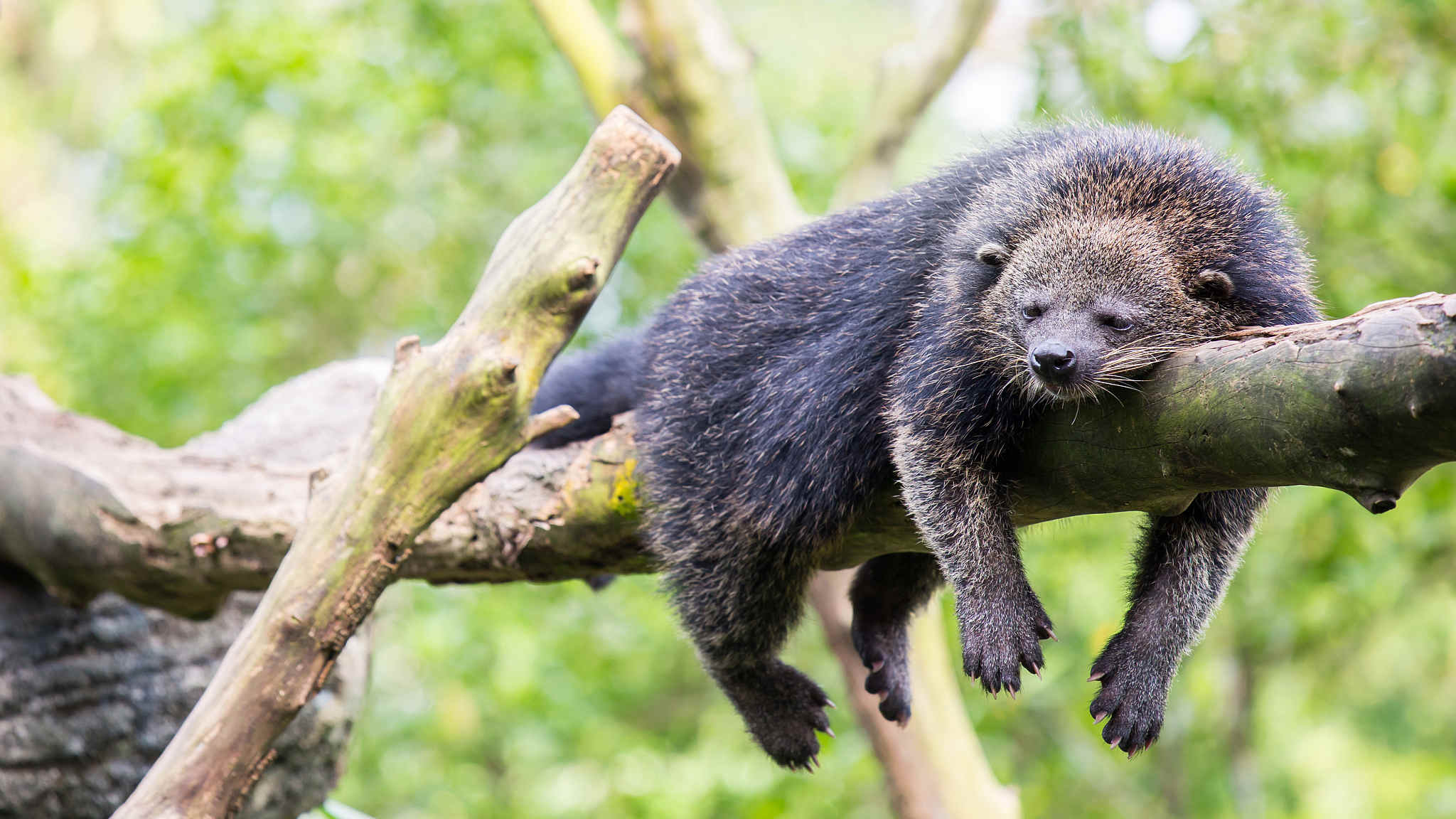
A binturong resting on a branch. /VCG Photo
A binturong resting on a branch. /VCG Photo
Like the monkey, the binturong is one of the few mammals that have a prehensile and curled tail which functions as a fifth hand that helps it to climb all the way to the canopy of a tree. It would even twine its tail around a branch while sleeping on it.
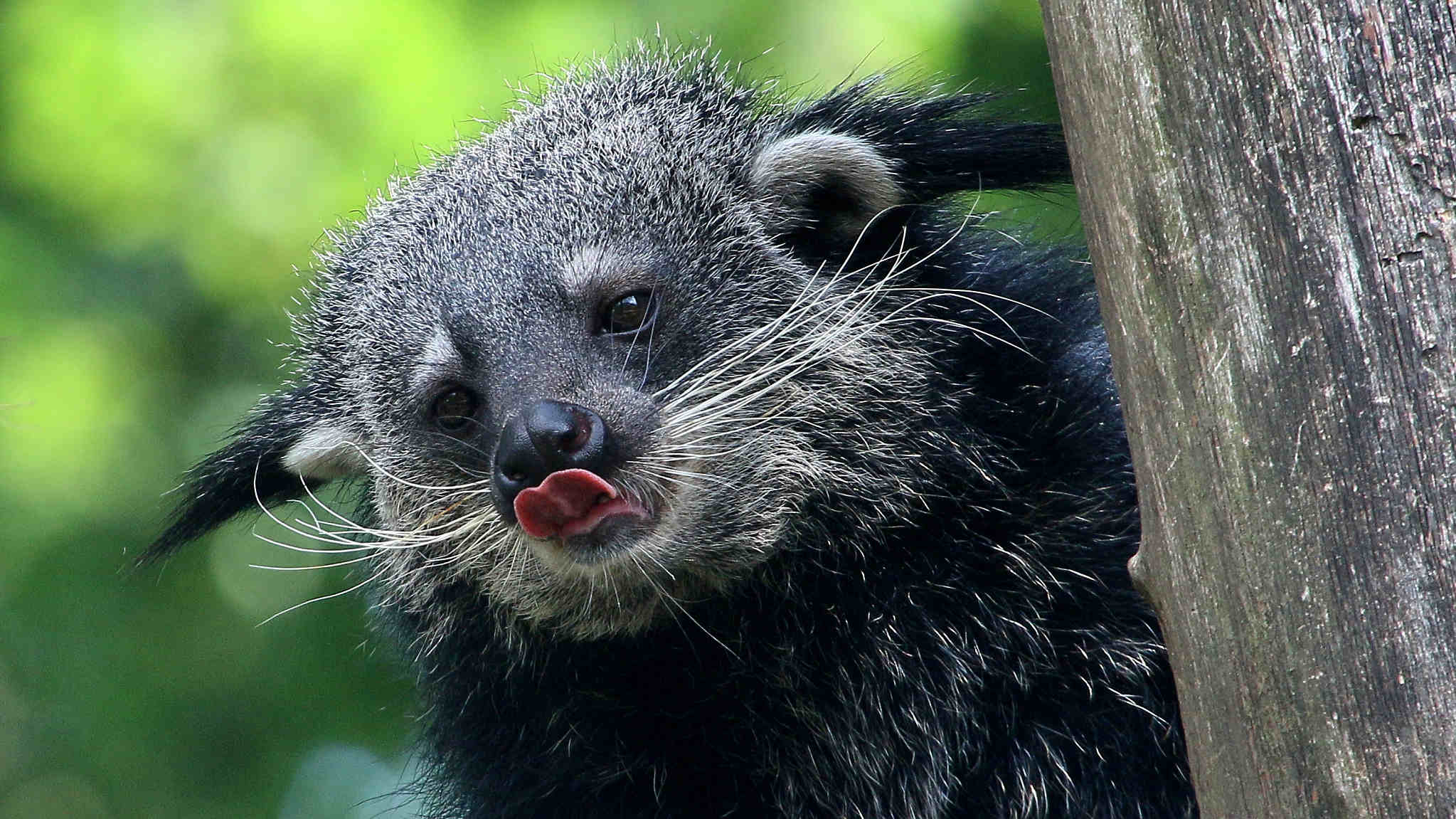
A binturong sticking out its tongue. /VCG Photo
A binturong sticking out its tongue. /VCG Photo
It is an arboreal animal, meaning that it lives on the tree for most of its life. Its feet are five-toed and are helpful when climbing. Although it is categorized as a carnivore, the binturong's favorite food is fruit. They have a huge appetite for figs and grapes.
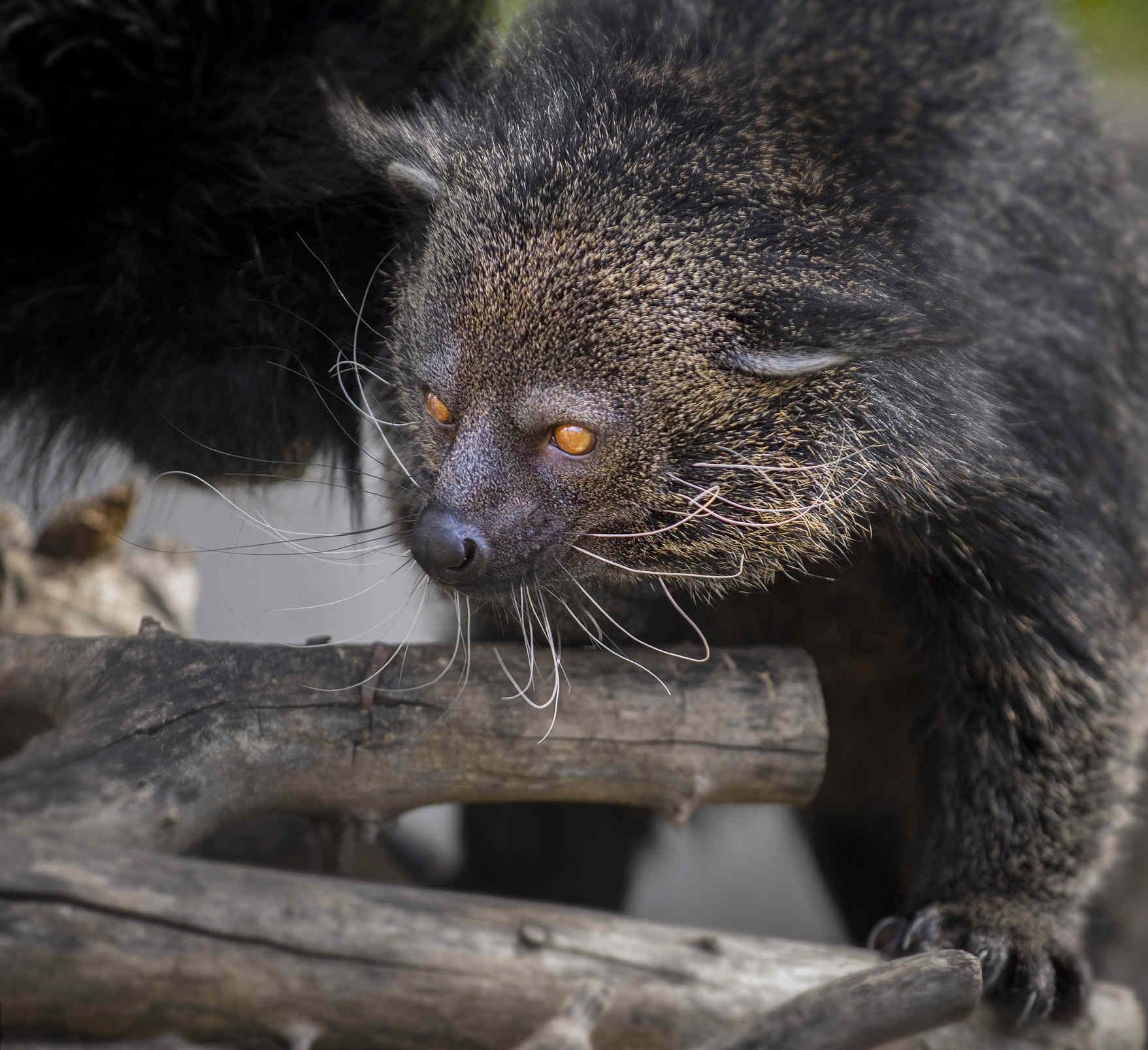
Binturongs' eyes turn orange when they encounter strong light. /VCG Photo
Binturongs' eyes turn orange when they encounter strong light. /VCG Photo
This small mammal is extremely fierce and aggressive if harassed. When facing a potential predator, it would flash its claws and appear threatening. Therefore, preying on adult binturong is very rare.
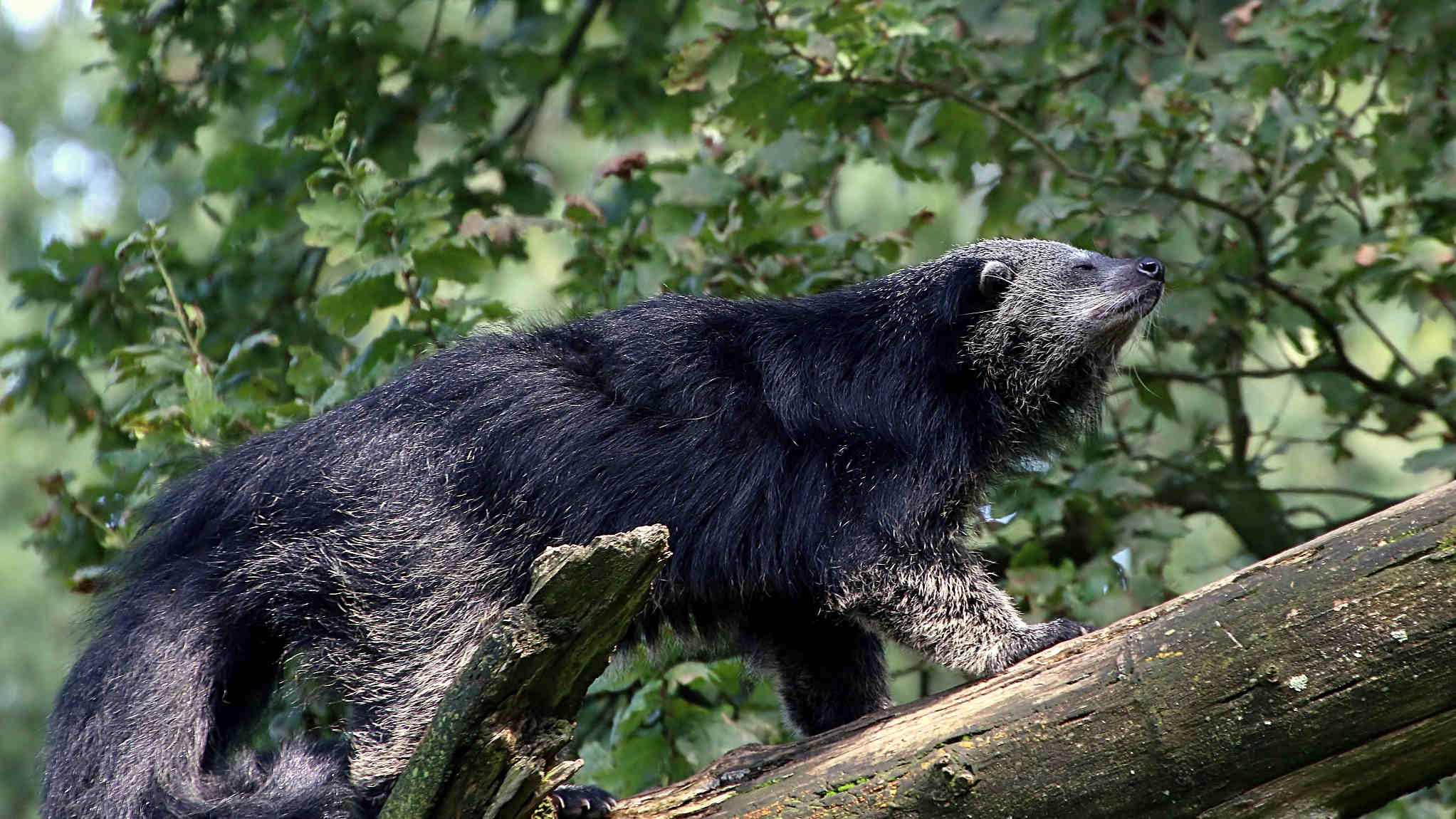
A binturong climbing on a branch. /VCG Photo
A binturong climbing on a branch. /VCG Photo
Aggressive as it is, the binturong smells like popcorn. Like many other species in the family Viverridae, the binturong has a scent gland which is located under its tail. It drags its tail as it moves around, leaving a popcorn-like smell to mark its territories.
(Cover image designed by CGTN's Li Yueyun.)

SITEMAP
Copyright © 2018 CGTN. Beijing ICP prepared NO.16065310-3
Copyright © 2018 CGTN. Beijing ICP prepared NO.16065310-3